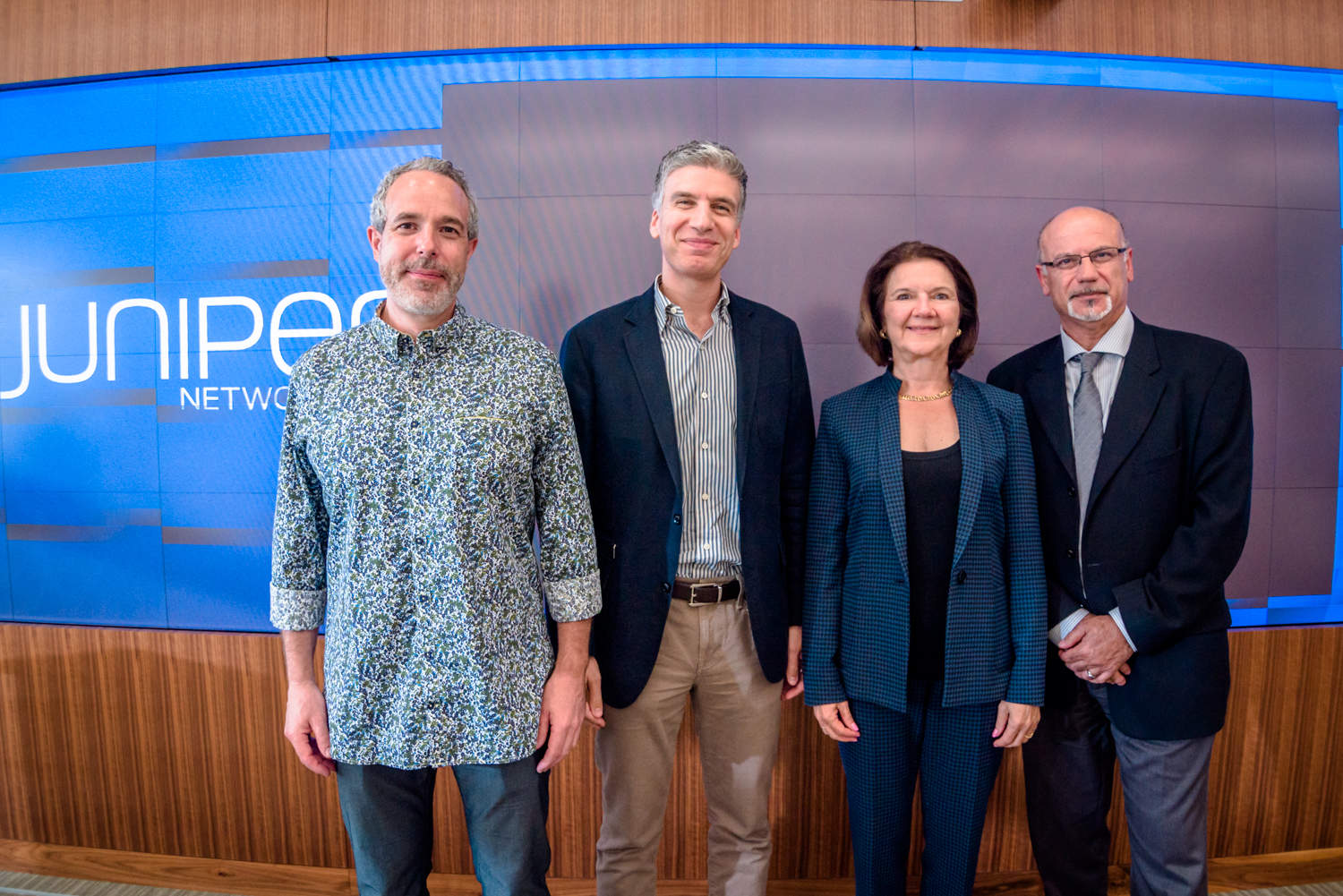
July 7, 2016
Your computer can identify you in photos, sort your email and keep your money safe online, but like anyone starting a new job, first it needs to learn how. The field of machine learning has exploded in recent years, and researchers are now developing software systems that can “learn” by exposure to training data sets and make “decisions” about real-world problems in ways that approach or exceed human abilities.
On Thursday, June 23, alumni of the University of Toronto’s Faculty of Applied Science & Engineering, current students and friends of the Faculty gathered at a BizSkule Speaker Series event in California to learn about the next frontier of machine learning from one of the field’s experts, Brendan Frey, a professor in The Edward S. Rogers Sr. Department of Electrical & Computer Engineering (ECE) and CEO and co-founder of the startup company Deep Genomics.
Hosted by Rami Rahim (ElecE 9T4), CEO of Juniper Networks at the company’s headquarters in Silicon Valley, BizSkule showcases engineering leadership by inviting keynote speakers and industry panellists to share their experiences and insights on key issues and hot topics.
Professor Frey and his team are working on closing what he calls the genotype-phenotype gap: understanding how a person’s genomic make up influences their physical characteristics and traits. And he’s using machine learning to do it.
“Engineering is not just a collection of courses; it is really an approach to thinking about problems, breaking them down, quantifying them and finding solutions that are optimal or efficient,” said Professor Frey. “We started using machine learning to understand the language of the genome, and the goal is to use this technique to change medicine.”
Machine learning is a discipline within the field of artificial intelligence whereby computers teach themselves without being explicitly programmed. Neural networks are machine learning models that are structured in ways that are similar to the connectivity of brain tissue. Unlike simpler methods, neural networks can learn to model very complex, multilayer relationships. Twenty years ago, computers were slow and data was scarce; one neural network training experiment could take weeks, if not months, to complete — even for a small neural network. Computational advances and access to large data sets allow researchers today to train massive neural networks in a matter of minutes or even seconds. Practical applications of machine learning can be seen in information technology, genomic medicine, healthcare and law.
Frey shared how machine learning allows researchers at Deep Genomics to determine how mutations in DNA, our genetic blueprints, can cause things to go wrong inside cells and lead to disease. Deep Genomics’ machine learning systems find patterns within whole genomes —more than three billion paired molecules of DNA — that are otherwise indecipherable to a human. Frey also explained his journey from writing academic papers to launching a startup.
The BizSkule Speaker Series is presented by Bennett Jones. The next BizSkule event is scheduled for Fall 2016.
More information:
Jessica MacInnis
Senior Communications Officer
The Edward S. Rogers Sr. Department of Electrical & Computer Engineering
416-978-7997; jessica.macinnis@utoronto.ca